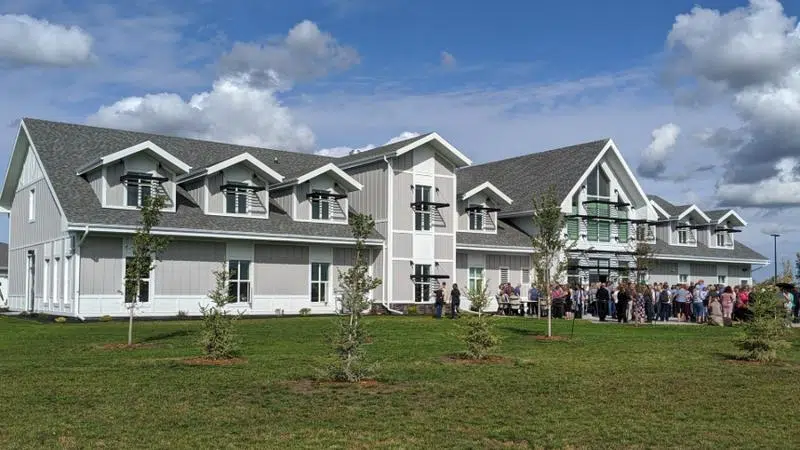
Prairie Hope Women’s Centre aims to reshape addictions rehabilitation in Sask.
What started as a prayer on an empty field three-and-a-half years ago has turned into a revolutionary rehabilitation complex that hopes to change lives for generations in Saskatchewan.
On Saturday, Teen Challenge, a faith-based addiction rehabilitation organization, celebrated the grand opening of its latest facility, The Prarie Hope Women’s Centre. It’s an expansive complex located a few kilometres from Hague, approximately 50 kilometres north of Saskatoon.
A crowd of more than 200 people were there to mark the occasion and tour the new building.
Teen Challenge CEO Glen Smeltzer thinks the opening of the centre is all due to the support of the community — support that could translate into success for the program.


